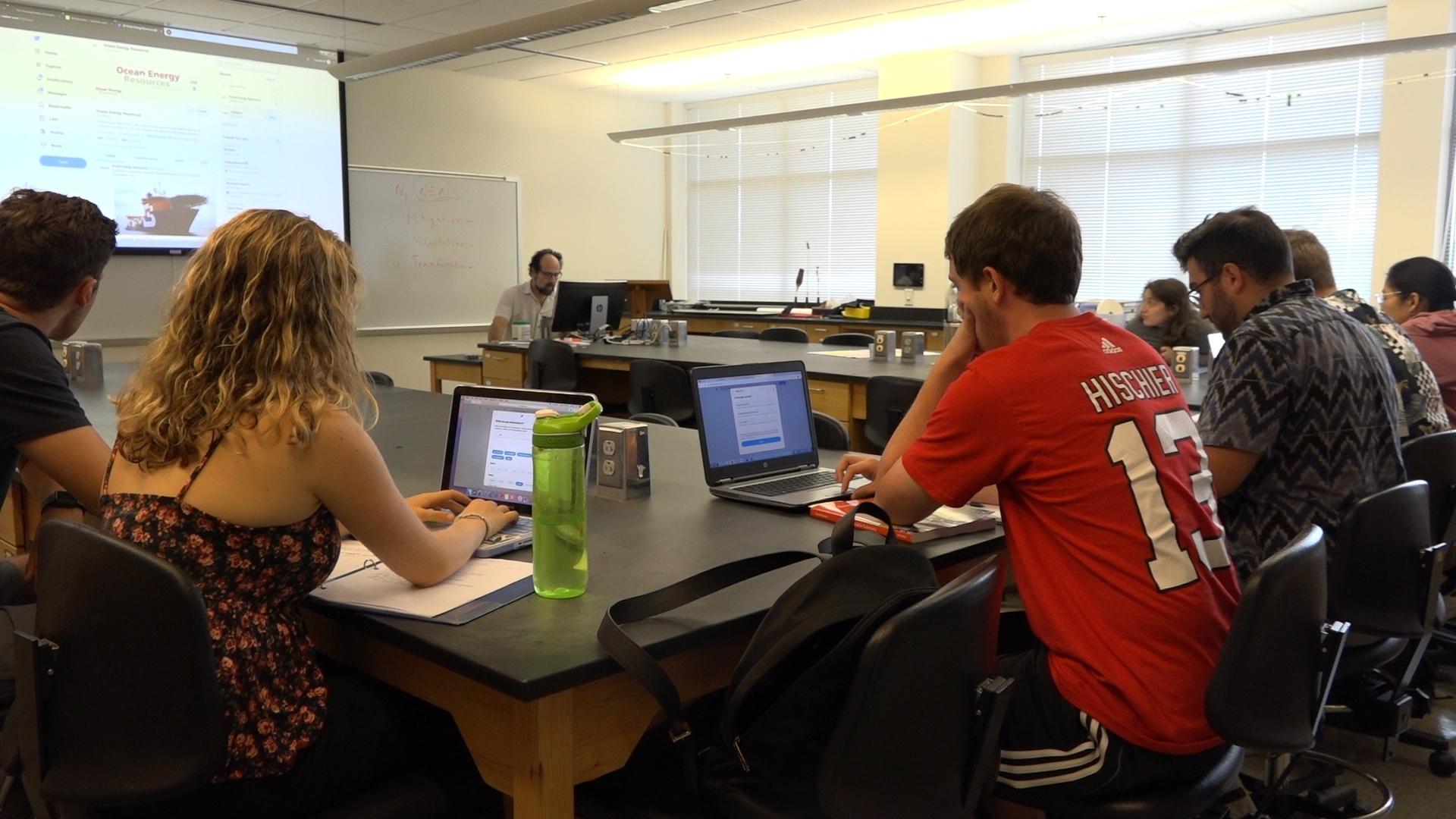ALLENTOWN, Pa. (WLVT) - Students are back on campus at Muhlenberg College, and when they graduate, some of them will have something new on their diplomas. That’s because the college is now offering a degree in sustainability studies for the first time.
From the moment students get to campus, the Muhlenberg Green Team gets to work, collecting cardboard and other items to recycle during the move-in process. It’s part of a bigger effort to encourage sustainability, including a bike share program.
"These bikes enable students to be able to decrease their own carbon footprint," said Kalyna Procyk, Muhlenberg's sustainability coordinator. "It also enables them to get out into the community and get out of the 'Muhlen-bubble.'"
The campus also features solar panels, composts, a rain garden, and a community garden. This week, Muhlenberg was named as one of the top-performing sustainable higher education institutions in the country.
It’s what inspires students like junior Benjamin Delin, one of the first to declare a major in sustainability studies.
"You're learning how to deal with everything as a whole across a wide range, because environmental issues, and climate change and all this stuff really aren't just science -- clear cut, that's it. It's everything," he said.
Muhlenberg offered the program as a minor, but now, students can earn a Bachelor of Arts degree.
Dr. Richard Niesenbaum, the program director, said as the world faces more environmental challenges, students can find hope in what they're learning.
"It's got to be positive and solutions-based, saying that, 'Yes, you can make a difference as an individual and as a collective,' and students really respond well to that," he said.
The program focuses on three areas: environment, economics and sociology. Sustainability studies is interdisciplinary by nature, Niesenbaum said, so the coursework covers several subjects.
"I am taking writing courses," Delin said. "I will be taking anthropology, sociology, courses all around."
Several classes take learning out of the classroom and into communities around the world. Niesenbaum has been taking students to the mining town of Las Juntas, Costa Rica for more than 20 years.
"That's a place where, on the ground, they're experiencing the damages and the impact of climate change on their daily lives, "he said. "Our students have an opportunity to see how people have to adapt to, say, shorter rainy seasons, which they depend on to grow their food."
"We saw their economy, how it was based off of, we saw gold mining and other things like that, small businesses," said senior Allie Mirsky, a self-designed sustainability studies major.
"They have the largest amount of protected, forest protected land," added senior Miranda Salters, a sustainability studies and public health double major. "Because of issues in the past, they really decided to tackle that."
"It was honestly one of the best experiences I've ever had," Delin said. "It was definitely an idea opener for me, and definitely this is what I want to go for. This is what I want to be doing."
"Our sustainability program at Muhlenberg really allows students to get their hands dirty and get some practical experience in how we might need to shift the way that we work together and the projects that we have to have a better planet and a more sustainable world," Procyk said.
As students have traveled through Muhlenberg’s programs, they say they're inspired to do more.
"I went to Israel, where I worked at the Jerusalem Botanical Gardens, which is where I really got into some of that hardcore gardening work working in the greenhouse," Salters said. "I thought that was a really great experience for me to come back to school and bring that to the gardening club and different things on campus."
"That's where my passion now lies," Mirsky said. "I want to get out more into the world. I want to see more places and experience more sustainability initiatives all over, hopefully bringing back to the U.S."
A new major means new opportunities for students to find jobs.
"We've had students go into advocacy. We've had students go into law," Niesenbaum said. "Certainly, business. Every business now has a sustainability department or staff. Every university does.”
"Anything from environmental law -- they'll have a better understanding of how to apply the needs of the planet to our legal system -- environmental policy, planning -- how we plan our cities," Procyk added.
As students work on a website as their capstone project, they're thinking about what they'll do with their degree.
"I'm hoping to eventually get out there and do marine conservation, coral conservation, environmental consultancy for big companies," Delin said, "because that's one of the main issues we have now is people following policies."
"I'm looking to potentially pursue environmental law, so that's an option," Salters said. "Also...animal conservation in the environment, that really interests me."
No matter what they decide to do, students in the new major say they're grateful Muhlenberg is getting them ready.
"That was the perfect thing for me," Delin said.
"My path has kind of changed a little bit, and I'm really happy about it and excited for the future," Salters added.
"I am beyond happy this is what I'm doing with my life," Mirsky said.
To learn more about Muhlenberg's sustainability studies program, click HERE.
Muhlenberg Students Explore New Sustainability Studies Degree
by
Published on
• Last modified on
•
Comments




